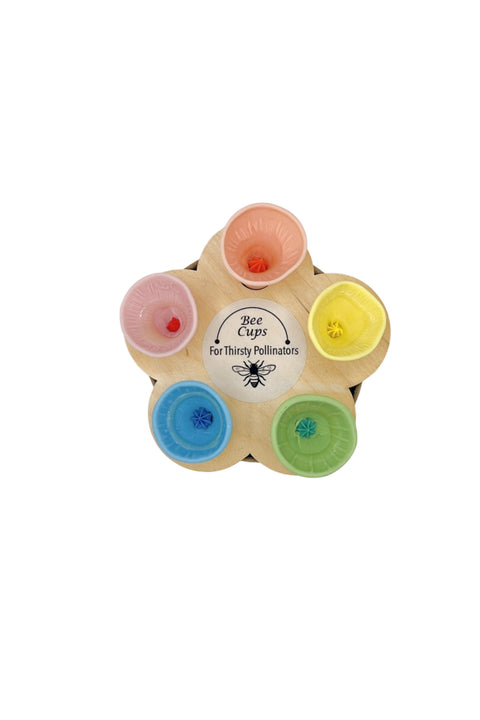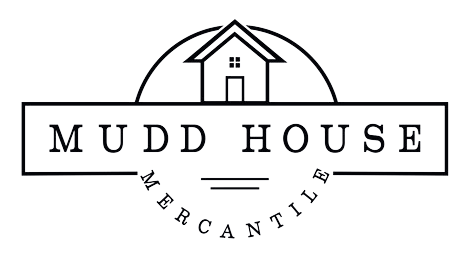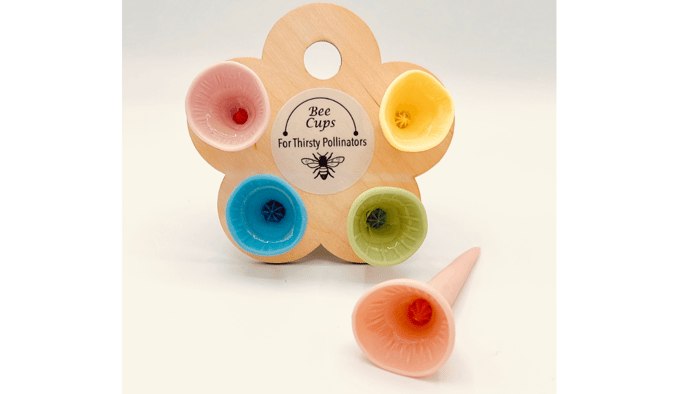Pollinators are the unsung heroes of our ecosystems—and they’re facing more challenges than ever. If you’ve been looking for an easy, beautiful way to support bees, butterflies, and other beneficial insects in your yard, look no further than Bee Cups. These tiny porcelain watering stations are designed specifically to give pollinators a safe, accessible source of hydration—an often overlooked but vital resource for their survival (National Park Service, 2023).
We’ll dive into the importance of pollinators, why they’re in trouble, how Bee Water Cups help, and how you can support pollinators in your own backyard. We'll also answer popular questions like, "How do Bee Cups work?" and explore why porcelain bee cups make the perfect bee gifts for garden lovers.
Why Pollinators Are So Important
Pollinators—like bees, butterflies, beetles, hummingbirds, and moths—are responsible for helping over 75% of the world’s flowering plants reproduce. This includes over one-third of the food crops we eat, such as apples, blueberries, cucumbers, almonds, and melons (USDA, 2021; Pollinator Partnership, 2022). Without pollinators, both natural ecosystems and human food supplies would face major disruptions.
Honey bees, in particular, are vital for commercial agriculture, pollinating roughly 80% of flowering plants globally (University of Arkansas Division of Agriculture, 2022). But they’re just one of many pollinator species that make life on Earth thrive.
Beyond food production, pollinators support the reproduction of plants that form the base of ecosystems. These plants provide food, shelter, and oxygen for other animals, contributing to biodiversity and environmental balance.
Without pollinators, our landscapes would become barren, and food prices would skyrocket. From economic stability to ecological resilience, the importance of pollinators can’t be overstated.
The Pollinator Crisis: Why We Need to Act Now
Pollinator populations are declining globally due to a combination of factors, including:
- Habitat loss from urban development and agriculture
- Widespread pesticide use, especially neonicotinoids (EPA, 2023)
- Climate change (U.S. Global Change Research Program, 2023)
- Diseases and parasites
- Lack of clean water sources
One of the less-discussed but critically important needs of pollinators is access to safe, clean water. While food sources like nectar and pollen are often emphasized, water is just as essential—especially in hot summer months (National Wildlife Federation, 2023).
Dehydrated pollinators can become sluggish, less efficient at foraging, or even die. Clean, shallow water sources are few and far between, particularly in urban and suburban landscapes. This is where tools like garden bee cups come in.
What Are Bee Drinking Cups and How Do They Work?
They are small, beautifully crafted porcelain cups designed to hold water in a way that’s safe for small pollinators. Traditional water sources like bird baths or puddles can be dangerous for insects, as they risk drowning. Bee cups for thirsty pollinators solve this problem by providing shallow pools of water that bees and butterflies can easily access (Bee Cups, 2024).
Each honey bee cup is glazed in vivid colors that attract pollinators. Their design prevents standing water from becoming a breeding ground for mosquitoes, and they can be placed throughout a garden to offer hydration in multiple areas.
So, how do Bee Drinking Cups work? It’s simple:
- Fill the Pollinator Cup with fresh water.
- Place it in your garden, flower bed, or container garden.
- Refresh the water daily or as needed to keep it clean.
- Bees and butterflies will land on the rim or edge and sip water safely without the risk of drowning. It's a small addition with a big impact.
Why Garden Bee Cups Are a Game-Changer for Pollinators
Adding honeybee cups to your outdoor space supports pollinators in a unique and practical way. Here’s why they’re so effective:
- Safety First: Their shallow design makes them safer than traditional water sources.
- Attractive Colors: Glazed in hues that appeal to bees and butterflies.
- Weather-Resistant: Made from durable, high-quality porcelain, these cups can withstand the elements.
- Easy to Use: Just fill and place—no special tools or setup required.
- Encourages Biodiversity: Increased hydration supports increased foraging and pollination behavior.
Incorporating Bee cups for thirsty pollinators into your garden shows your commitment to sustainability and biodiversity. Plus, they add a charming, whimsical touch to any garden bed or patio planter.
How Are They Made: A Blend of Art and Function
Each Bee Cup is handmade in the U.S. using high-fired porcelain clay. This ensures they are:
- Durable and non-toxic
- Resistant to fading and cracking
- Safe for pollinators and pets
The craftsmanship that goes into these porcelain bee cups not only ensures quality but also makes each one a small piece of garden art. Their compact size and lovely colors make them a great gift for nature lovers, making bee cups for garden settings both functional and beautiful.
What sets these Pollinator Cups apart is their design philosophy: each piece is made not just to serve a purpose, but to celebrate and support the beauty of the natural world. When you place one in your garden, you’re participating in a gentle act of stewardship.
Where Bee Cups Are Made and Why They're the Original
Bee Cups are proudly made in the USA by the original creators of this innovative hydration solution for pollinators. Designed with both beauty and function in mind, these cups were developed by passionate naturalists and ceramic artists who saw a need for a safer way to offer water to bees and butterflies. Unlike imitators, Bee Cups are the first of their kind—thoughtfully handcrafted in small batches to ensure quality, originality, and care in every piece.
Supporting the original makers of Bee Cups means you're choosing authenticity and investing in products that prioritize ethical craftsmanship, environmental responsibility, and functional design that truly benefits pollinators.
Other Ways to Help Pollinators Thrive
Adding Bee Drinking Cups to your garden is just one way to make a difference. Here are a few more:
- Plant Pollinator-Friendly Flowers
- Choose native wildflowers and flowering herbs like lavender, bee balm, milkweed, and coneflower. These provide nectar and pollen that pollinators need year-round.
- Avoid Pesticides: Pesticides, herbicides, and fungicides can be harmful—even lethal—to bees and butterflies. Opt for organic gardening methods and natural pest control.
- Create Shelter: Leave patches of bare soil, wood piles, or bee hotels for native solitary bees. Even small spaces can provide valuable shelter.
- Leave the Leaves: In fall, let leaves stay on the ground. They provide essential habitat for overwintering insects like moths and butterflies.
- Provide Year-Round Blooms: Plan your garden so that something is blooming from early spring to late fall. A continuous food source keeps pollinators coming back.
- Reduce Lawn Size: Lawns are ecological dead zones. Replace portions with wildflowers, native shrubs, or clover to provide forage.
- Support Pollinator Organizations: Donate to or volunteer with local and national pollinator advocacy groups. Your support helps fund research and education efforts.
Bee Gifts That Truly Make a Difference
Looking for meaningful bee gifts for the nature-lover in your life? Garden honeybee cups are a thoughtful, practical option that supports pollinator health while adding charm to any garden. Whether it's for a birthday, housewarming, or just because, a honey bee cup makes a unique, eco-conscious gift.
Plus, gifting bee cups for garden use encourages others to join the movement in protecting pollinators—spreading the love one sip of water at a time.
Pair them with seed bombs, native plant starters, or even a pollinator journal to create a pollinator-themed gift bundle that’s perfect for gardeners, teachers, and nature lovers.
Bee Cups

$34.00
Tiny Sips for Big Helpers Give your garden visitors a place to drink with Bee Cups—adorable ceramic watering spots made just for pollinators. Whether you’ve got a big backyard bloom-fest or a single potted plant on your balcony, these garden… read more
Where to Find the Best Bee Cups for Thirsty Pollinators
At Mudd House Mercantile, we’re proud to carry handcrafted Honey Bee Drinking Cups that blend sustainability, art, and purpose. When you shop with us, you're supporting small makers and helping protect pollinators in your own backyard.
We believe small actions make a big difference—and providing water for pollinators is one of the easiest and most rewarding ways to contribute. If you’re passionate about sustainability, gardening, and creating a pollinator paradise, our Bee water cups are the perfect fit.
Love learning about sustainable living? Don’t miss out! Subscribe to our website to get the latest on eco-friendly products, seasonal tips, and exclusive offers delivered right to your inbox.
Let’s grow something beautiful together.
Sources:
U.S. Department of Agriculture (USDA), Pollinator Partnership
Environmental Protection Agency (EPA)
University of Arkansas Division of Agriculture
National Wildlife Federation
U.S. Global Change Research Program
Bee Cups Official Website

